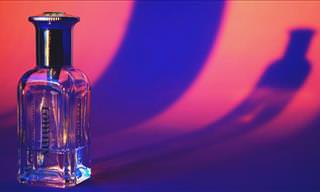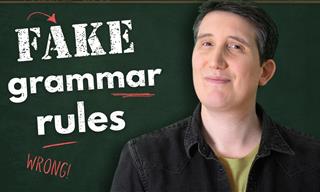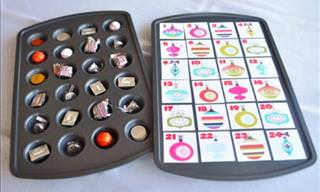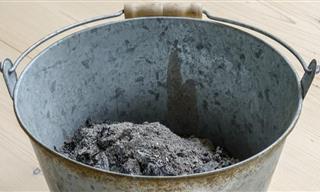

When you see a website or business point out that it’s ‘FDA registered,’ it’s usually an empty claim. All this means is that a manufacturer registered their company with the FDA. However, this doesn’t mean that their devices or products have passed FDA approval or that they even applied for said approval.
Certain businesses, such as medical device manufacturers, are required by the FDA to register and renew their registration every year, but the FDA doesn’t review their facilities or oversee the manufacturing process when a business claims that it’s FDA registered.
When you see this claim on a product, it doesn’t mean that the product has been reviewed by the FDA at all.
Similar to the previous claim, ‘FDA Certified’ is nothing but a shady and alarming marketing practice. The FDA doesn’t issue registration certificates to all companies under the sun. In fact, the term ‘FDA Certified’ isn’t even recognized by the FDA, so definitely treat this marketing trick as a red flag.
One of the few exceptions to that rule is mammography centers. The facilities require FDA certification and always display their certificates for customers.

When used in good faith, a drug or device that’s been said to be ‘FDA Cleared’ actually has more credibility to its name than the previous cases we mentioned. The FDA requires a number of medical devices to undergo premarket review. These are all devices that could have a moderate to high risk to the user or patient, so they require FDA clearance under something called the 510(k) process. Such products as enema kits, catheters, and wheelchairs are subject to this kind of clearance.
‘FDA Approved’ sounds impressive, right? That’s because it kind of is… Only the most dangerous and highly controlled substances require FDA approval. These products include drugs, some medical devices, food additives, and the like. Pacemakers, medications, and vaccines all fall within this category. Since these products have a high risk of harming human health and can pose a serious threat to one’s life, the FDA requires a rigid approval process and clinical testing completed by the manufacturer before the product in question can appear on the market.
According to the FDA, a product is approved when the agency “has determined that the benefits of the product outweigh the known risks for the intended use.” So when the label ‘FDA approved’ appears on medication, it is a sign that the drug is considered safe and reviewed by the FDA.
However, be mindful of the following trickery. Some companies that don’t ever require FDA approval, like food supplements or cosmetics, for example, may put the label ‘FDA approved’ on their products. Be critical of such packaging claims, as well as vague terms like “we are working towards FDA approval.” These misleading marketing claims don’t mean anything on products like these because neither cosmetics nor nutritional supplements require approval by the FDA in the first place.
As the FDA state themselves, “neither the law nor FDA regulations require specific tests to demonstrate the safety of individual products or ingredients”. The responsibility for the safety of such products lies completely on the manufacturer, so cosmetics labeled “FDA approved” are no more effective or better than similar products without such a label.
If you’d like to check if a product is FDA cleared or approved, the best way to do so is by visiting the FDA database here - The Official FDA Database. If a product or company that claims to be FDA Approved or Cleared isn’t on this list, they are lying and trying to trick the consumer.
Share this article with those who will find it useful!
H/T: Mental Floss

Can You Risk Eating Eggs Past Their Prime?
Eggs are not usually on the list of shopping items you buy in bulk, but should they?

Black Cumin Oil - 5 Remarkable Health Benefits and Uses
This guide explores 5 proven health benefits of black seed oil and explains how to use it at home.

16 Confusing Words That Even Intellectuals Get Wrong
Find out the difference between these difficult word pairs, and don’t let them confuse you ever again.

6 Things We All Get Wrong About CHOLESTEROL
Pay attention to these 6 misconceptions about high cholesterol. Don’t let them mislead you and ruin your health.

This is Preposterous! 14 Pics of Misleading Food Packages
Deceptive packaging is too common these days! Here are 14 disappointing examples of misleading food packages everyone should be aware of.

Pass on the Salt! FDA Issues New Guidelines On Salt Intake
Did you know that many foods have too much salt even before you pick up the salt shaker?

9 Ways of Telling Branded Perfume From a Fake
Do you know how to tell a branded perfume from a fake? Well, you're going to be able to after you read these 9 handy tips.
 23:50
23:50
Time to Ditch These Outdated Rules of English Grammar!
It’s time to stop following these English grammar rules that never really mattered.

Here Are the 8 Biggest Oven Mistakes You Should Avoid
Stop making these mistakes if you want your oven to remain fully-functional for many years to come.

Plagued By Liver Spots? Here Are 9 Ways to Get Rid of Them
Skin spots are a reality for many of us and can often be a nuisance. But, fortunately, they can be lightened with these 9 natural ingredients.

13 Mistakes You’re Making in the Shower!
Do you take a shower every day? If so, you're already making one of the 13 shower mistakes most people aren't aware of. Discover them all in the next article.

Great Dog Training Tips You'll Wish You Knew Before!
Here are 10 great training secrets that will make it easier for you to train your puppy. Take a look.
 4:50
4:50
This Method Has Proven to Help Plants Grow!
Diapers are known for their absorbent capabilities, but not many people know that disposable diapers can also be incredibly useful in the garden...

6 Home Security Mistakes to Stop Making Today
These security mistakes make you home an easy target for intruders. This is how to avoid them.

9 Ways to Exercise for People Who Don't Like to Exercise
9 ideas for ways you can stay in shape even if you hate exercising.

The Best Plant Milks For Every Task
Different plant milks work best for various tasks, which can be tricky. This culinary guide will help you choose the best ones for you
 1:03
1:03
Never Leave Water Bottles in Your Car.. Here's Why!
There are a lot of things that we know shouldn't be left in the car, but you probably never thought that this item could cause such harm!

Do Not Flush These 8 Things Down the Toilet
If you never want to have to pay a hefty price for an emergency plumber, we have a handy list for you today that explains the things you should never flush down a toilet.

The Ultimate Guide to Stress-Free Family Holiday Travel
Enjoy holiday travel with your family this season without the usual headaches.
 13:03
13:03
Running Out of Storage Space? Keep These 20 Tips in Mind
Running out of storage ideas? Here are 20 space saving ideas to bear in mind.

Should You Preheat the Car Engine When It’s Getting Cold?
Experts say that leaving the engine run idle in cold weather is both a waste of your money and terrible for the car engine and the environment.

Nutritional Tips for Older Dogs: Diets That Work
Make sure your senior dog stays healthy with these tips.

15 Unusual Uses For Onions That Won't Make You Cry
Onions are pretty amazing things. Not only do they make cooking taste much better, they also have 15 surprising household uses. You've never seen these before!

Infographic: 10 Ways to Fall Asleep on a Plane
This infographic covers 10 practical, proven ways to fall asleep on planes,

Avoid Buying These Foods When Shopping at the Supermarket!
You might think that everything in a supermarket is safe to consume, but that is not always the case. Here's 7 foods you should avoid.
 17:55
17:55
The Art of Talking: How to Never Run Out of Things to Say
Get ready to turn awkward silences into meaningful, effortless conversations.

Give Your Old Bakeware a New Lease of Life With This Guide
Many of us are guilty of letting bakeware pile up in our cupboards, but this guide will show you how to give it a new lease of life. See these 10 great ideas.

These 8 Things Might Be Making Your Dog Upset!
While our dogs love us most, it turns out that there are 8 things we do that really bother them...
 4:34
4:34
7 Super Useful Embroidery Tips and Hacks
Get to know 6 tricks for creating beautiful embroidery designs on clothes—perfect for beginners, but also for those already familiar with the technique.

10 Amazing Ways to Use Oatmeal Flakes Outside the Kitchen
You will be surprised to discover these other alternative uses for oatmeal flakes outside the kitchen.

Your Sleeping Position Has a Big Impact on Who You Are
So which of these 7 positions is yours, and what does it say about you?

8 Useful Tips That Will Help You Tame Your Anger!
Being angry takes its toll on your health and relationships. Therefore, this video will show you 8 great ways to keep your anger in check.
 4:56
4:56
I Never Knew Scarves Could Be Tied in This Many Ways!
25 creative ways to tie a scarf in less than 5 minutes

Discover How to Use Turmeric to Remove Unwanted Hair
Turmeric is a wonderful spice from India that has a whole myriad of different applications. Here's how to make 5 turmeric-based masks for unwanted hair removal.

Stop the Stink: Reduce Armpit Odor With These Handy Tips
Take note of these useful tips that will help you get rid of underarm odor.
 9:07
9:07
How to Relieve Foot Pain in Less Than a Minute
Learn to relieve foot pain in a matter of minutes or even less than a minute with these exercises.

Is Your Garden Healthy? Test It with These Soil Tips
How healthy is your garden? Test it out with these helpful tips.

Wearing Sunscreen? Pay Attention to These 7 Critical Areas
The next time you are heading out into the sun, make sure you cover these vital spots of the body with sunscreen.

Keep the Flu Out of Your Home with these 8 Tips
Did you know that if somebody in the family comes down with the flu, all it takes is a couple of hours for the virus to spread? This room-by-room guide will help stop germs in their tracks, keeping everyone at home healthy and flu-free.
 17:38
17:38
Four Important Tips For Improving Your Critical Thinking
Let's explore how our brains were truly built to think.

The Best Time of Day to Eat Healthy Foods!
In this article we have outlined the best time of the day to indulge in some of your favorite foodstuffs.

5 Crucial Things to Consider When Buying Used Furniture
Buying used furniture lets you buy high-quality pieces for less money. In this article, we list 5 useful tips that will help you select quality used furniture.

Salad in Fridge: Guide to Avoid Waste & Stomachaches
In this article, we’ll clarify this topic and understand which salads last longer, how to extend the shelf life of different types of salads, and, of course, when it’s time to say goodbye to them.

I Never Knew the Fireplace Ash Could Do That!
Learn 5 things you can do with fireplace ashes instead of disposing of them

Going Gray? Add These 7 Foods to Your Shopping List!
Adds these foods to your weekly shopping list to prevent your hair from turning gray.

Retirement Planning: The 7 Biggest Mistakes People Make
Are you guilty of making these 7 deadly mistakes in your retirement financial plan? Here are seven offenses on how to get back on track.
 25:38
25:38
These Hidden Airplane Features Can Save Your Life!
The next time you board a flight, make sure you remember these tips.
To enable your Ad-Free Subscription, please fill the fields below
Your subscription was successful, now you can enjoy an ad-free experience!! Note: To make sure you get no ads, please make sure to log in to your account. If you are logged in already, then refresh the page. The subscription can be cancelled at any time.


